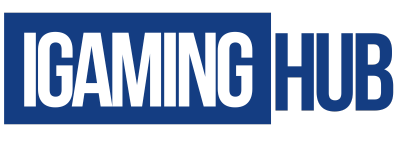The iGaming industry, consisting of online casinos, betting platforms, and virtual gaming, has seen significant growth in recent years, making it a lucrative market for entrepreneurs and small businesses. However, navigating the complexities of entering such competitive markets can be daunting. This article aims to provide a comprehensive guide for small business owners looking to expand their ventures into the vast iGaming landscape.
Understanding the iGaming Market
To successfully break into the iGaming market, one must first understand its intricacies and segments. The industry encompasses various forms of online gambling, including sports betting, casino games, poker, and bingo. Each segment has its target audience, regulatory concerns, and technology requirements that potential entrants need to consider.
Key Segments of the iGaming Market
- Sports Betting
- Online Casinos
- Poker Rooms
- Bingo Halls
- Lotteries
Legal and Regulatory Considerations
One of the primary obstacles in entering the iGaming market is navigating the complex web of legal and regulatory requirements. These regulations vary significantly from one jurisdiction to another, affecting how business is conducted, which games are allowed, and the necessary licenses you need to obtain.
Tips for Complying with Regulations
- Research Your Target Market: Understand the specific legal framework of the jurisdictions you intend to operate in.
- Obtain Necessary Licenses: Apply for all the relevant gaming licenses, keeping in mind that this process can be long and expensive.
- Ensure Fair Play: Invest in certified fair gambling practices and technologies to build trust with your users.
- Maintain Financial Transparency: Adhere to anti-money laundering (AML) and know your customer (KYC) policies.
Strategies for Small Businesses Entering iGaming
For small businesses without the resources of larger companies, certain strategies can be employed to ensure a successful entry into the iGaming market.
Focus on Niche Markets
Targeting niche segments within the broader iGaming market can reduce competition and help establish a loyal customer base. For instance, focusing on a specific sport for betting or offering unique casino games can distinguish your business from the crowd.
Leverage Technology
Implementing the latest technology can enhance user experience and operational efficiency. Innovations such as mobile platforms, live dealer games, and blockchain technology for secure transactions can offer small businesses a competitive edge.
Develop Effective Marketing Strategies
Creating a strong brand presence is crucial in the crowded iGaming space. Employ digital marketing tactics such as search engine optimization (SEO), social media advertising, and affiliate marketing to attract and retain customers.
Conclusion
Navigating small businesses into big iGaming markets requires a comprehensive understanding of the industry, meticulous planning, and adherence to legal frameworks. By focusing on niche markets, leveraging technology, and developing effective marketing strategies, small businesses can carve out their space in the competitive iGaming industry. With persistence and innovation, the opportunities for growth in this dynamic sector are vast.


